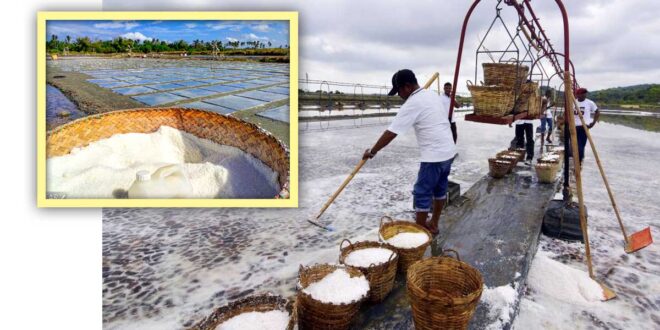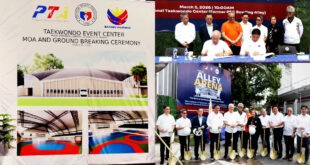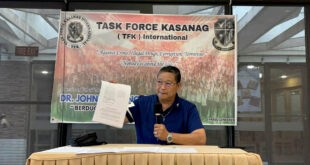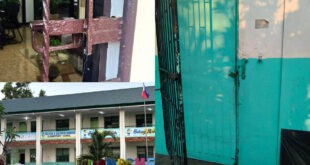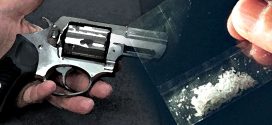“NAGKAROON ng bagong buhay ang naghihingalong salt industry nang lagdaan ni President Ferdinand Marcos, Jr., ang Republic Act No 11985 (An Act Strengthening and Revitalizing the Salt Industry in the Philippines, Appropriating Funds Thereof,” pahayag ni Senator Cynthia A. Villar.
Bilang principal sponsor ng bill, nagpasalamat si Villar kay Marcos sa malaking tulong upang muling buhayin ang naghihingalong salt industry sa bansa at ito umano ay isang ‘welcome development.’
Tinukoy ng senadora, tila isa itong ‘dininig na dasal’
para sa mga manggagawa at stakeholders ng sektor na umaapela sa pagbuhay sa industriya.
Ipinahayag niya na muling makagagawa ng asin ang mga naninirahan sa coastal communities.
Ipinunto ng Chairperson ng Committee on Agriculture and Food, matutugunan ng batas ang pagpapalawak sa kasalukuyang salt farms o asinan na nakatuon lamang sa Pangasinan at Mindoro.
“The Department of Environment and Natural Resources and BFAR are mandated to map out, identify, and designate public lands, including portions of municipal waters, as salt production areas within 60 days from the passage of this Act,” ani Villar.
“Public land for salt production shall also be leased for a 25-year period, renewable for another 25 years, for use as salt farms. For this purpose, BFAR shall issue the Salt Production Tenurial Instrument where cooperatives and associations of subsistence and small producers and farmers shall be given preferential treatment,” dagdag ng senadora.
Dagdag ni Villar, “kailangan nating matugunan ang tumataas na demand ng Filipino household at ang karagdagang taunang demand na 300,000 metric tons ng asin bilang coconut fertilizer sa ilalim ng 2021 Coconut Farmers and Industry Trust Fund Act.”
Desmayado ang mambabatas dahil ang salt production ay 16.782 percent o 114,000 metric tons ng 683,000 metric tons sa annual demand.
Sa ilalim ng bagong batas, gagawa ng Philippine Salt Industry Development Roadmap na kabibilangan ng mga programa, proyekto, at interventions sa development at management, research, processing, utilization, modernization, at commercialization ng Philippine salt.
Bubuo ng 16-member Philippine Salt Industry Development Council na pamumunuan ng Department of Agriculture (DA) Secretary.
Ibibigay sa salt industry ang makokolektang taripa mula sa imported salt sa pagbuo ng Salt Industry Development and Competitiveness Enhancement Fund (SIDCEF).
“For 10 years, the SIDCEF shall be earmarked for the: (1) provision of machinery and equipment, including sea water pumps, salt graders, salt harvesters, dump trucks and bagging machines, and salt iodization machines for beneficiaries who are into salt iodization; 50 percent; (2) establishment of salt farm warehouses/storage areas; 40 percent; (3) conduct of extension services; 5 percent; and (4) development of modern salt production and processing technology; 5 percent,” saad sa batas.
Sa ilalim ng bagong batas, tinukoy ni Villar na nagiging optional na lamang ang iodization ng asin na hindi “for human consumption” o local food production gayondin ang artisanal salt.
Kailangang tumupad sa iodization standards ng Department of Health ang importers, traders, at distributors ng imported food-grade salt na isasailalim sa fortification.
“It also seeks the creation of a Philippine Salt Industry Development Council, which will be tasked to ensure the unified and integrated implementation of the salt roadmap,” pahayag ng senador. (NIÑO ACLAN)
 HATAW! D'yaryo ng Bayan hatawtabloid.com
HATAW! D'yaryo ng Bayan hatawtabloid.com

